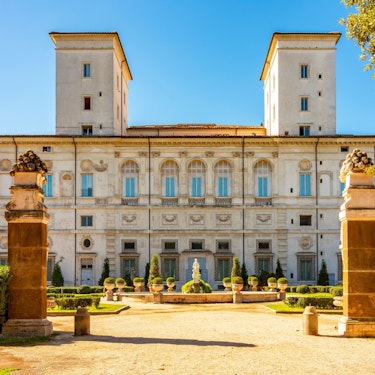More about: 3 Days in Rome
While three days is a short time to really get to know Rome, it's more than enough time to see the city's most beautiful sights and even take a leisurely stroll through its streets and enjoy its distinctive atmosphere. Here's the ideal itinerary for a 3-day trip to Rome, with tips and tricks to see a lot in less time.
Day 1: Explore the Vatican and the Historical Centre
The best way to start your visit to Rome is by taking in the city's most iconic sights- be prepared to be left open-mouthed as soon as you start your trip!
Sistine Chapel
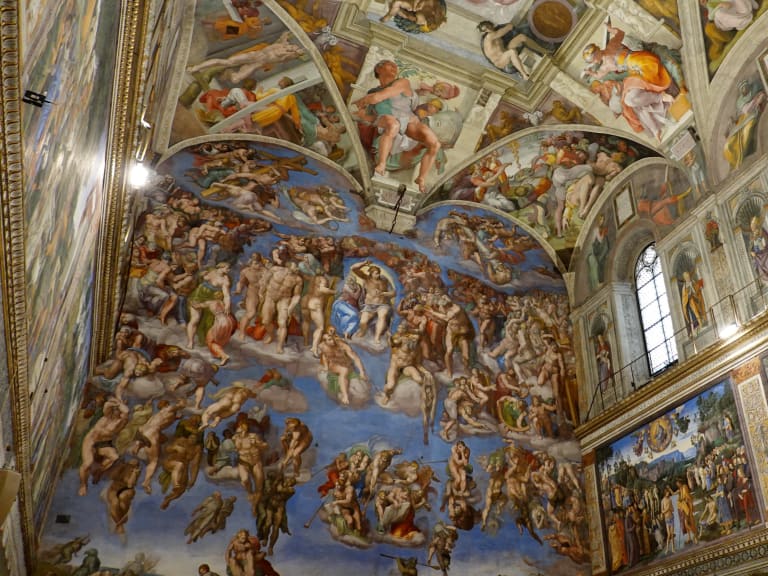
Vatican City is the first stop on the itinerary. Although you won't technically be in Rome during this visit, both the Sistine Chapel and St. Peter's Basilica could be enough to make a trip to the Eternal City unforgettable. The Sistine Chapel is part of the Vatican Museums, a museum that houses an impressive collection of religious and modern art, rooms dedicated to the exhibition of archaeological remains, and even a museum of papal carriages.
But let's get to the point: to visit the famous chapel painted by Michelangelo you have two options:
- Buy your tickets for the Sistine Chapel.
- Take a guided tour of the Vatican Museums with an official guide who will tell you all the details about this place full of history.
And if you accept any more advice, I'll tell you what:
- The ideal is to visit the Sistine Chapel as early in the day as possible.
- The opening is at 9 am (every day of the week except Sundays).
St. Peter's Basilica

Leave the Vatican Museums and go to the majestic St. Peter's Square. To do so, follow these directions:
- Go along Viale Vaticano until you turn right into Via Leone IV.
- Continue along Viale dei Bastioni di Michelangelo.
- Then take Via di Porta Angelica until you see the columns lining the square.
- Look for the entrance and marvel at the spectacle that suddenly rises before your eyes.
By the time you arrive, there will be plenty of tourists queuing to enter the temple, so it is highly recommended that you book a guided tour of St Peter's Basilica with an official guide to get the full story behind everything you see inside.
This Renaissance marvel has a lot to see inside:
- The Baldacchino
- Michelangelo's Pietà
- The tomb of Alexander VII
- The Vatican Grottoes
- The dome of St. Peter's Basilica. Inside, you'll get a close-up view of the frescoes and inscriptions that decorate it, and outside you'll have incredible views of the Vatican and Rome.
One thing to note is that on Wednesdays the basilica does not open until 1pm for the Papal Audience, a blessing by the Pope himself to the faithful gathered in the square. On Sundays it is also closed to the public.
And remember: you will not be allowed into St Peter's Basilica unless your shoulders and knees are covered, so avoid shorts, skirts, dresses and sleeveless tops.
Castel Sant'Angelo
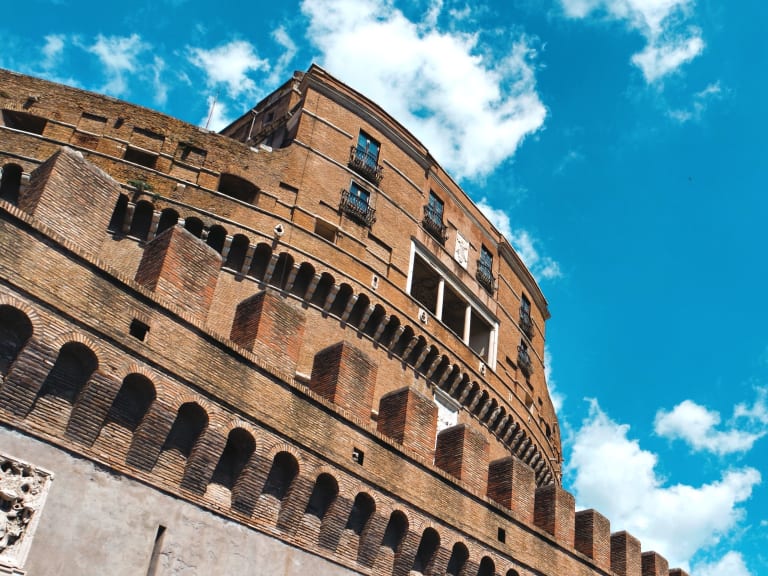
Originally built as the mausoleum of Emperor Hadrian, almost two thousand years ago. Since then, Castel Sant'Angelo, on the banks of the Tiber River, has been a tomb, a fortress for the Pope in case of attack, a castle and, nowadays, a museum.
Inside, you can see the papal flats, Hadrian's mausoleum, and tour the bastions from which defensive cannons still point, and best of all, climb to the rooftop to enjoy the views of Rome. On a 3-day trip to Rome I don't consider it necessary to explore the interior as part of the itinerary, but if you're particularly interested you'll find all the information you need here: Castel Sant'Angelo in Rome: Tickets and Tours.
Piazza del Popolo
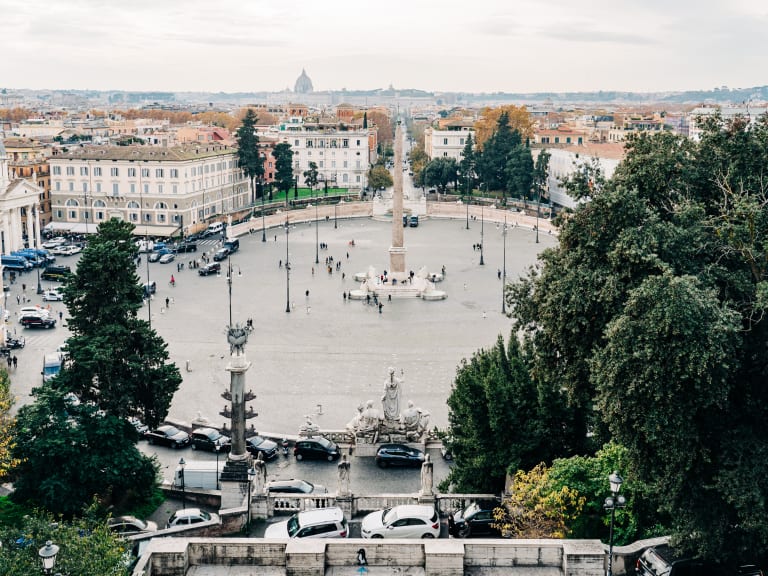
From Castel Sant'Angelo you can take a pleasant stroll along the banks of the Tiber until you reach the Piazza del Popolo, the place where travellers used to arrive in Rome. Nothing better than taking a tour of Rome's squares and fountains to get to know its history and secrets.
In the centre of this square you will see an Egyptian obelisk from the time of Ramses II, and on both sides the twin churches of Santa Maria in Montesanto and Santa Maria del Miracoli, located on both sides of the Via Corso.
You can stop to rest for a while and then look for a place to eat. On recommendation, I went to the trattoria dal Pollarolo 1936, at Via di Ripetta, 4, and I liked it very much. It's an unpretentious place, not at all touristy, serving authentic pizza and pasta, and good value for money.
Piazza di Spagna

The afternoon visits are the most beautiful and recognisable places in Rome. From Piazza del Popolo, walk down Via del Babuino and in less than 10 minutes you will have reached Piazza di Spagna, whose main attractions are its famous steps, leading to the beautiful church of Trinità dei Monti, and the Fontana della Barcaccia.
The staircase, which in spring and summer is filled with floral decorations and people, was used as a backdrop for Audrey Hepburn in the film 'Roman Holiday' - it's not just the Trevi Fountain that's famous for being in a film! Speaking of which, it's the next stop of the day.
Trevi Fountain
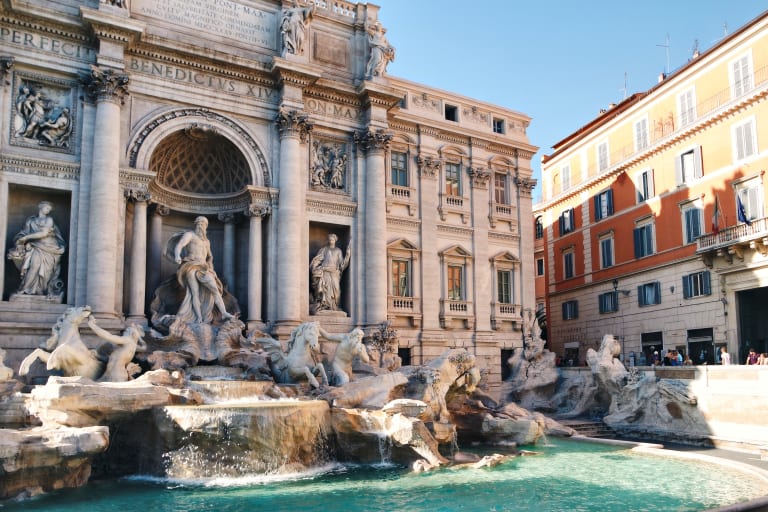
What a fantastic work of art. For its symbolism, for the elegance of its execution, for the magic of the place at sunset, for how much it has inspired artists from all over the world...
You will always find people in front of it or throwing coins into the water, following the tradition that says that throwing one coin will bring you back to Rome in the future, two coins will bring you an Italian love and three coins will bring you a marriage (or a divorce). But you have to do it right: throw the coin with your right hand over your left shoulder.
If you don't fancy finding the Piazza di Trevi crowded to its four corners, you can visit the Trevi Fountain at another time: either at dawn or after midnight there will be very few people and these are two very special times to see this place.
The Pantheon
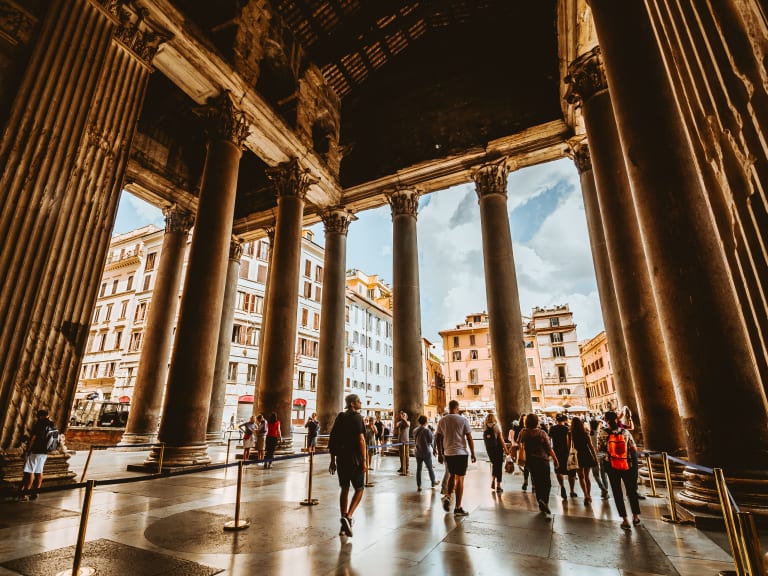
A short walk from the Trevi Fountain is the Piazza della Rotonda, home to the incredible Pantheon of Agrippa (also known as the church of Santa Maria Rotonda). It's the best-preserved Ancient Roman building in the city, and while the outside is stunning, the best part is inside, so booking a visit to the Pantheon is one of the must-do activities on your trip to Rome.
Going when there is still some light is a beautiful experience as the building has a spectacular dome with an oculus through which sunlight enters and reflects off the mosaics and statues housed in the Pantheon.
Originally built as a temple dedicated to the entire mythology of Roman gods, the Pantheon was converted for use as a Christian church in the early 7th century. Inside you can see the tombs of some Italian monarchs and the tomb of the painter Raphael.
Day 2: Visit the monuments and ruins of Ancient Rome
You have already seen the most spectacular of Rome's Renaissance and Baroque eras, but there are still some of its most remarkable monuments to discover and delve deeper into the history of the Empire.
The Colosseum
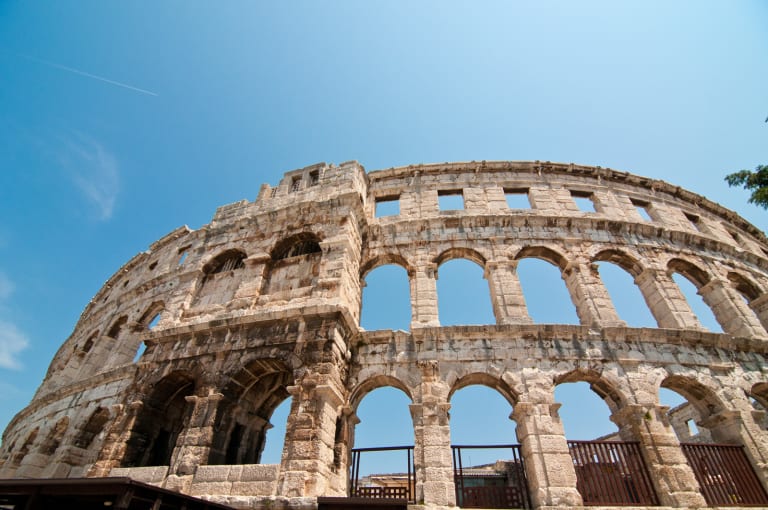
Built in antiquity as the place par excellence to hold public spectacles, the Colosseum evokes images of gladiators fighting to life and death in the arena and is also an important place for Catholic worship, as this is where the first Christians died for their faith.
It is one of the most popular places in Rome for tourists and for this reason I advise you to make it the first thing you visit on the second day of your trip:
- To skip the line and wait as little as possible, it is best to book your tickets for the Colosseum online.
- You can also take a guided tour of the Colosseum, lasting about 2.5 hours, which will give you direct access to the Colosseum and allow you to learn about its history from an expert guide.
- Another option is to buy a Roma Pass, which includes admission to the Colosseum and other attractions, plus a multi-day public transport pass. In fact, the Roma Pass is perfect for a 3-day trip to the Eternal City. Keep in mind that even if you are going to use a tourist pass to access the Colosseum, you have to book the day and time of your entrance, something I recommend you to do as early as possible to ensure an early time in the day.
Some other details you need to know are as follows:
- The Colosseum is open daily from 8:30 am until 7:00 pm.
- It is closed on 25 December and 1 January.
- It is located in Piazza del Colosseo.
- The best way to get there is to go to the Colosseo metro stop on line B, although you can find out more ways to get there in the post How to get to the Colosseum in Rome.
The Roman Forum and Palatine Hill

Next visit: a journey to the heart of Rome in ancient times! In the time of the Empire, what is known today as the Roman Forum was the centre of public life in the city. There you'll see ruins of buildings dedicated to commerce and political life, and you'll get an idea of what daily life was like in ancient times.
The Colosseum ticket allows you to enter the Roman Forum, located on the Palatine Hill, one of Rome's seven hills, as long as you do both visits on the same day (which is why I recommend you do this visit immediately afterwards, wink wink, and well, because they're very close to each other and the itinerary looks great that way).
It is best to enter the Roman Forum through the Via di San Gregorio entrance, where there is less queuing to enter, and exit through the door that is closer to the Colosseum.
Baths of Caracalla

Although time has taken its toll on the baths, and their state of preservation is far from other places like the Colosseum or the Pantheon, a visit to the Baths of Caracalla is very interesting and I personally think that a walk through these ruins has a very special charm.
You can imagine the hundreds of bathers who came daily to the Baths spending the day in its gardens, its library and exercising and taking care of their hygiene. It is a building that really represents the splendour of Ancient Rome like no other, as it is synonymous with having achieved a level of wellbeing (reserved only for citizens) comparable to modern times.
The Baths of Caracalla are open every day of the year except 25th December. To get there from the Colosseum, walk down Via di San Gregorio, continue along Viale delle Terme di Caracalla and turn into Via Antonina.
The Mouth of Truth
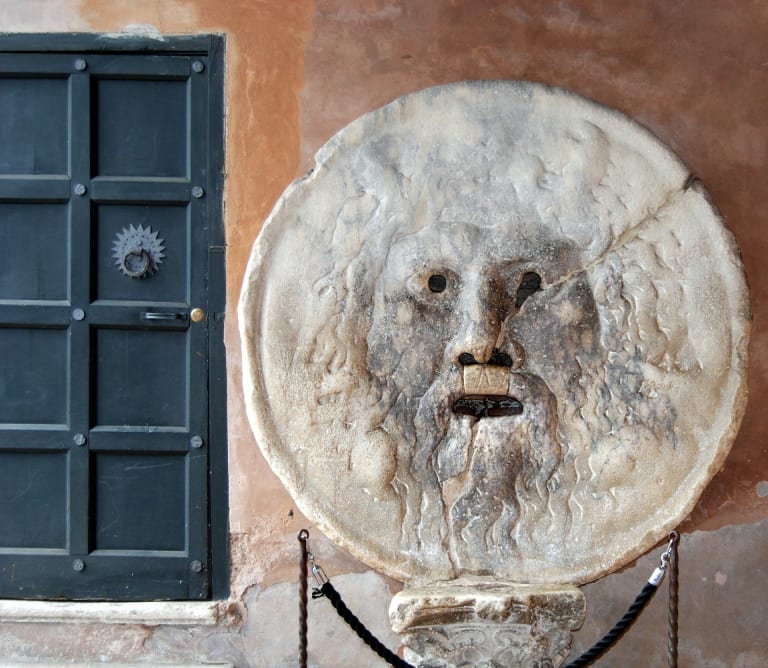
I haven't told you this before, but look, at this point it's best to watch Audrey Hepburn and Gregory Peck's 'Roman Holiday' before your trip, because in addition to the scene in Piazza di Spagna, the protagonists of the film also visit the famous Bocca della Verità, the famous marble mask which, according to legend, bites the hand of lying people.
It is located in the Piazza della Bocca della Verità, which is just opposite the Tiber Island, where the Church of Santa Maria di Cosmedin is located. Its inner portico houses the Bocca della Verità. The square is quite beautiful and in front of the church you can also visit a temple dedicated to Hercules and the Fountain of the Tritons.
To get there from the Baths of Caracalla, the best way is to walk: retrace your steps until you reach Via di San Gregorio and continue straight on along Via dei Cherchi until you reach Piazza della Bocca della Verità.
Trastevere
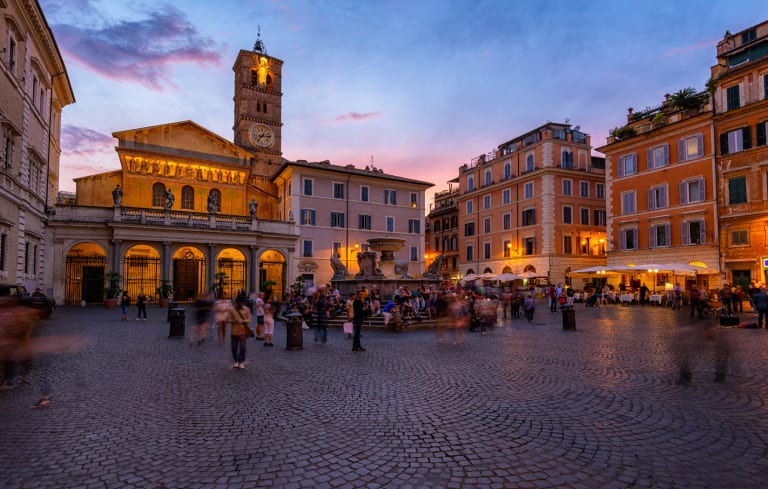
To end the day, the last visit is on the other side of the river Tiber: a former working class neighbourhood that today is one of the most beautiful places in the city and a neighbourhood that has never ceased to be fashionable among locals and tourists alike. The cobbled streets of Trastevere are lined with charming buildings and nooks and crannies and some of Rome's best pizzerias.
I recommend taking a stroll around the area and visiting Piazza di Santa Maria in Trastevere (home to one of Rome's most striking churches) and discovering the surrounding streets full of vines and charm and, if you have time, taking a tour of Trastevere to get to know it in depth is an excellent option.
A great place to dine is Pizzeria Ai Marmi on Viale di Trastevere, 53-59. It's open until 2:30 in the morning and you'll see many people eating pizza at the tables on the terrace or standing up, as the place looks more like a kitchen than a restaurant. But there's a reason why it's always crowded: their pizzas are to die for.
Day 3: Explore Rome's history and venture into its Catacombs
To end your trip to Rome, the best thing to do is to get away from the centre and discover other parts of the city, including the secrets hidden beneath its streets and monuments.
Via Appia and the Catacombs
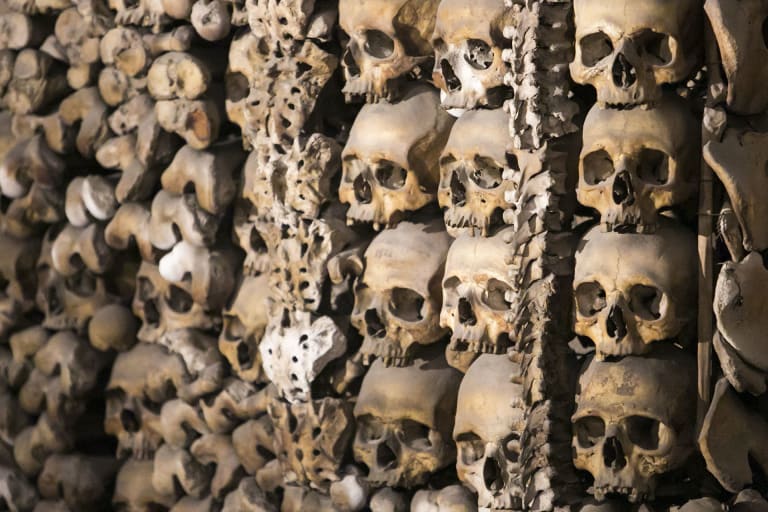
Built in 312 B.C., it is one of the oldest surviving roads in the world, which is fortunate because it shows the great importance it had for the Roman Empire, linking the capital with the settlements in the south of the territory and the movement of troops and goods.
Much of what can be seen today on the Appian Way is the original stone used in its construction, and along its route you can see several places of interest in the Parco dell'Appia Antica, one of the 10 best parks in Rome.
Afterwards, you can visit the Catacombs of Rome. There are two that are open to the public:
- The Catacombs of St. Callixtus, which offer the longest tour and inside you can see the tombs of the first 16 popes, as well as the resting places of several Christian martyrs.
- The Catacombs of St. Sebastian.
- In my opinion, the best option is a visit to the catacombs of Rome.
After the visit to the Catacombs, I recommend a stop for lunch. Ai Fienaroli, at Via Piemonte, 125, has a menu of exquisite dishes such as red tuna tartar with crusty bread and fennel cream, sea bass carpaccio with pistachios and black truffle, and my favourite, the artichokes with beans. The price is higher than other recommendations in this article, at around €40 per person.
Borghese Gallery
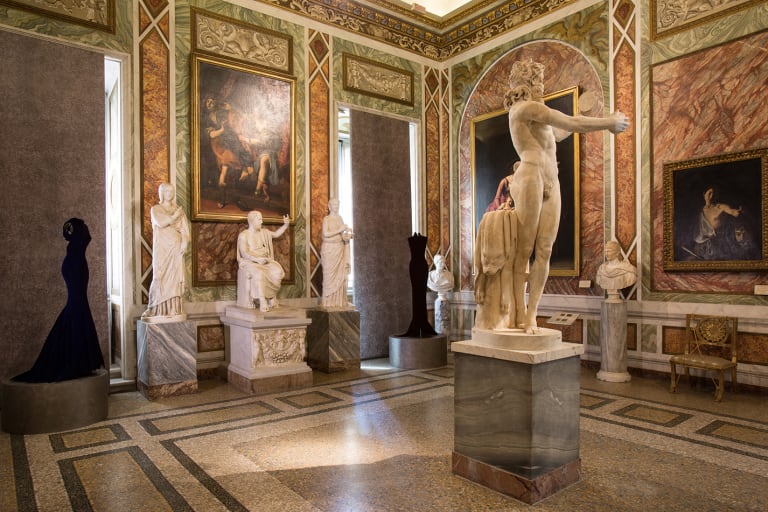
The Borghese Gallery, in the gardens of Villa Borghese, houses one of the most impressive collections in Rome with works by artists such as Raphael, Bernini and Caravaggio. It is open every day from 9:00 to 19:00, except on Mondays, when it is closed to the public.
To visit the Borghese Gallery you have several options: book a guided tour of the Borghese Gallery or access with the Roma Pass.
Once you have visited the Borghese Gallery, take a walk through the Villa Borghese gardens to see its best sculptures and head west towards the Piazza del Popolo. You'll find the Terrazza del Pincio, a place to enjoy one of the best views in Rome, especially at sunset.
Piazza Navona
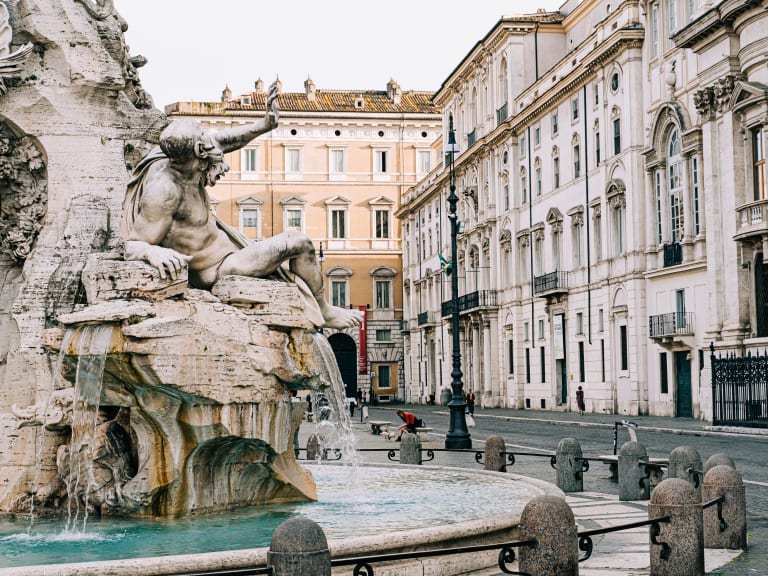
It's back to the centre for a last stop at Piazza Navona, the city's main square, so you won't leave Rome without seeing it. Here you can see a wonderful trio of fountains and have a coffee or an ice-cream or sit down to rest from this day full of experiences. This is, for me, one of the most beautiful squares in Rome.
As you have seen, visiting Rome in three days is possible if you know how to do it. Don't be afraid to include a large number of visits in the same day, as you have read it is very easy to get from one point to another as the sights are very concentrated in the city centre. Now, enjoy your getaway!
















